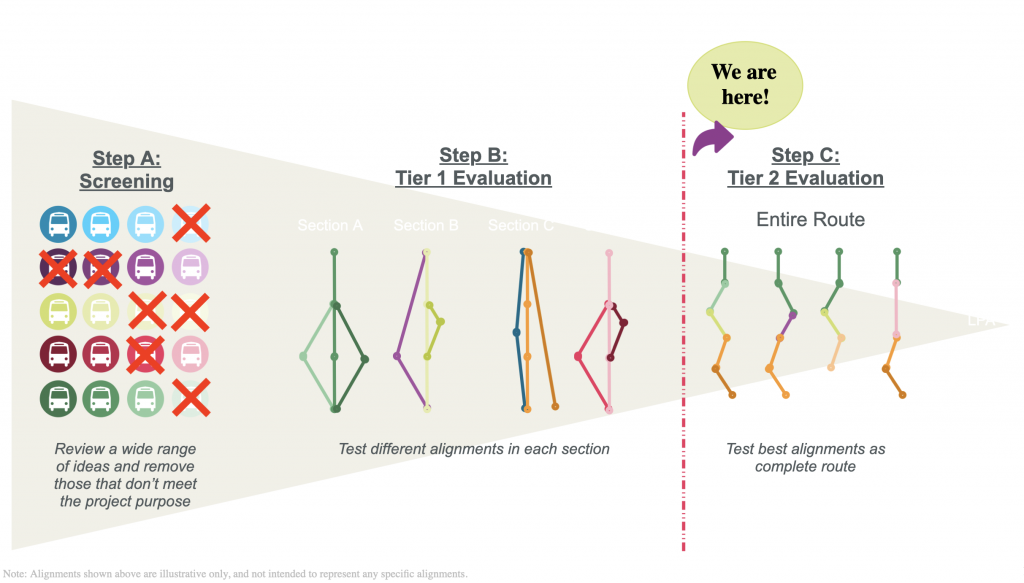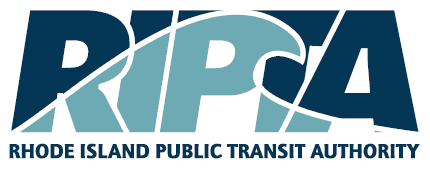
Metro Connector Study Update:
Summer 2025
The Metro Connector Study is exploring options for fast, frequent, and reliable transit service that connects regional activity centers, neighborhoods, business districts, and transportation hubs along two corridors in metropolitan Providence. More specifically, this study focuses on connecting higher-density areas in Central Falls, Pawtucket, Providence, Cranston, and Warwick.
We are currently more than halfway through our evaluation. We started with a potential universe of many ideas, developed a long list of concepts, and now we have identified a short list of four potential corridor alignments, or “alternatives,” that we want to study further. The four alternatives focus on two general corridors and include considerations for both light rail transit (LRT) and bus rapid transit (BRT).

Click here to view the interactive StoryMap that will tell you more about the evaluation process to date, and the four shortlisted alternatives.
What Comes Next?
Over the past month, our team of engineers has been evaluating how a new high-quality transit investment might be integrated into the existing streets of Central Falls, Pawtucket, Providence, Cranston, and Warwick. We looked at where stations would be, where in the roadway could transit vehicles operate, and how fast could transit reasonably and safely go considering other uses of the roads. All these assumptions will inform the Tier 2 evaluation, which is also happening this summer. This evaluation will compare the benefits and impacts of each alternative with one another, aligned with the overarching goals of the project and documenting anticipated ridership and costs to build and operate.
Later this summer, we will host a series of focus groups with stakeholders from across the potential Metro Connector communities to talk about the alternatives and potential benefits and impacts of each.
Our next milestone for community engagement will be this fall, following the Tier 2 evaluation. We’ll share the findings from our technical work with the public and seek input on how well each of the alternatives meet project goals and serve the communities in the project area. Feedback from the community will inform the last step of the project: identifying the mode and alignment that will move forward into the recommendations stage.
Stay tuned for updates including community pop-up events, surveys, and public meetings!
If you have further questions about Metro Connector, please email Project Manager Zachary Agush at MetroConnector@RIPTA.com, or call RIPTA at 401-794-9500 x1205.



